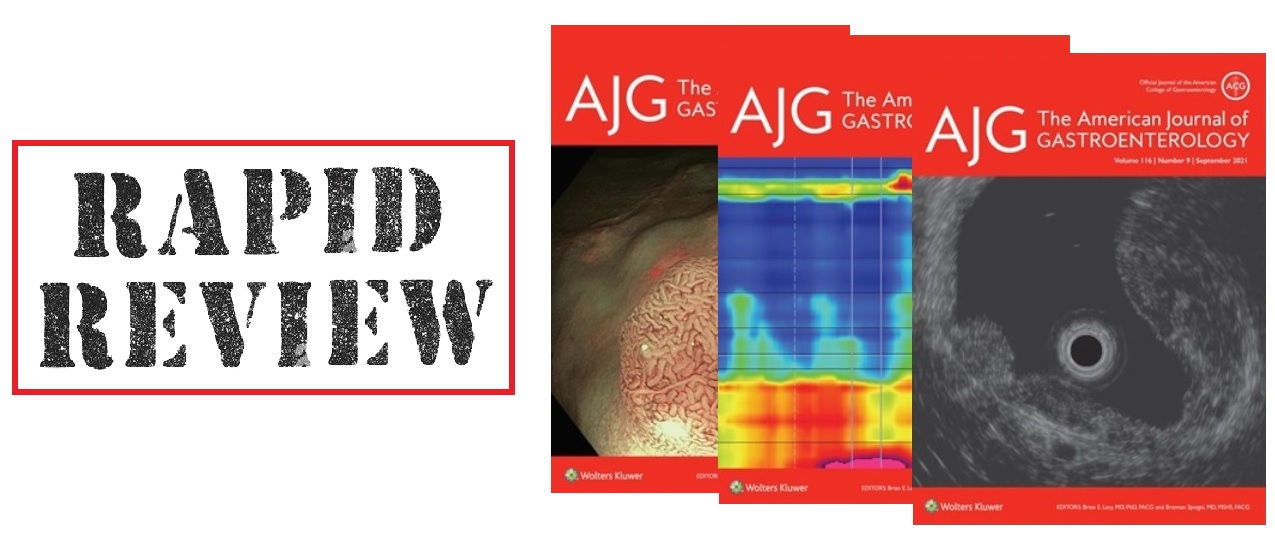
Overview of RCT in the AJG: The Editors of The American Journal of Gastroenterology are pleased to introduce an enhanced submission and peer review process for randomized controlled trials (RCTs). RCTs provide the highest available evidence of the superiority of one intervention over another and can guide important aspects to the care of GI populations – such as therapeutic drug selection, appropriate monitoring protocols, safety of interventions, and the use of diagnostic tests.
The co-Editors-in-Chief will evaluate all submitted RCTs, and hand-select papers for rapid review that have the potential to change practice, add to the literature, and would have the greatest impact on gastroenterology and hepatology. We hope that expediting selected RCTs through the editorial process will allow clinicians to incorporate results straight from the journal page to the bedside. Editorial timelines for RCTs selected for rapid review will undergo a thorough peer review in 10 days, and the accepted manuscript will be published online 7 days after acceptance. With this rapid timeline, researchers and clinicians will be able to use the newest data to identify how emerging scientific insights can be applied to patient care while safely evaluating new approaches to preventing, diagnosing, and treating disease through clinical trials.
Manuscripts can be submitted through the author portal of Editorial Manager. Authors should indicate that the paper is a RCT in the submission questionnaire to ensure that the paper is considered for rapid review. The Journal’s Instructions for Authors for further information on the proper manuscript formatting.
RCT Registration: To ensure consistency with the guidelines of the Clinical Trial Registration Statement from the International Committee of Medical Journal Editors, all trials submitted to the Journal with patient enrollment commencing after January 1, 2009 must be registered in a public trials registry prior to enrollment of the first subject. The registry must incorporate free public access, and must be searchable, open to prospective registrants, and have not-for-profit management. The following information must be included in the registry: (1) unique identifying number, (2) statement of intervention(s), (3) hypothesis, definition of primary and secondary outcome measurements, eligibility criteria, target number of subjects, funding source, contact information for the principal investigator, and dates of registration (start and completion). Authors should provide the URL (website address) and trial identification number on the title page of the manuscript. This information will be published with the article. Clinical trial reports should comply with the Consolidated Standards of Reporting Trials (CONSORT) and the checklist should be submitted at the end of the manuscript.
Reporting Clinical Trials Conducted by Pharmaceutical Companies: Please ensure that clinical trials sponsored by pharmaceutical companies follow the guidelines on Good Publication Practice. These guidelines aim to ensure that such trials are published in a responsible and ethical manner. The guidelines cover companies’ responsibility to endeavor to publish results of all studies, companies’ relations with investigators, measures to prevent redundant or premature publication, methods to improve trial identification, and the role of professional medical writers.

